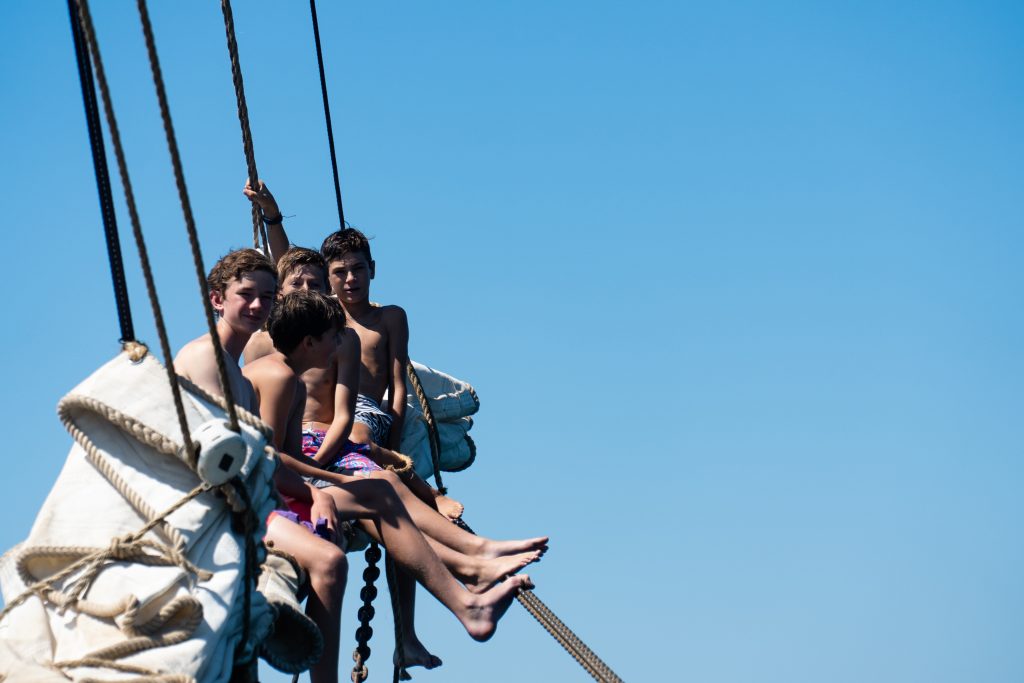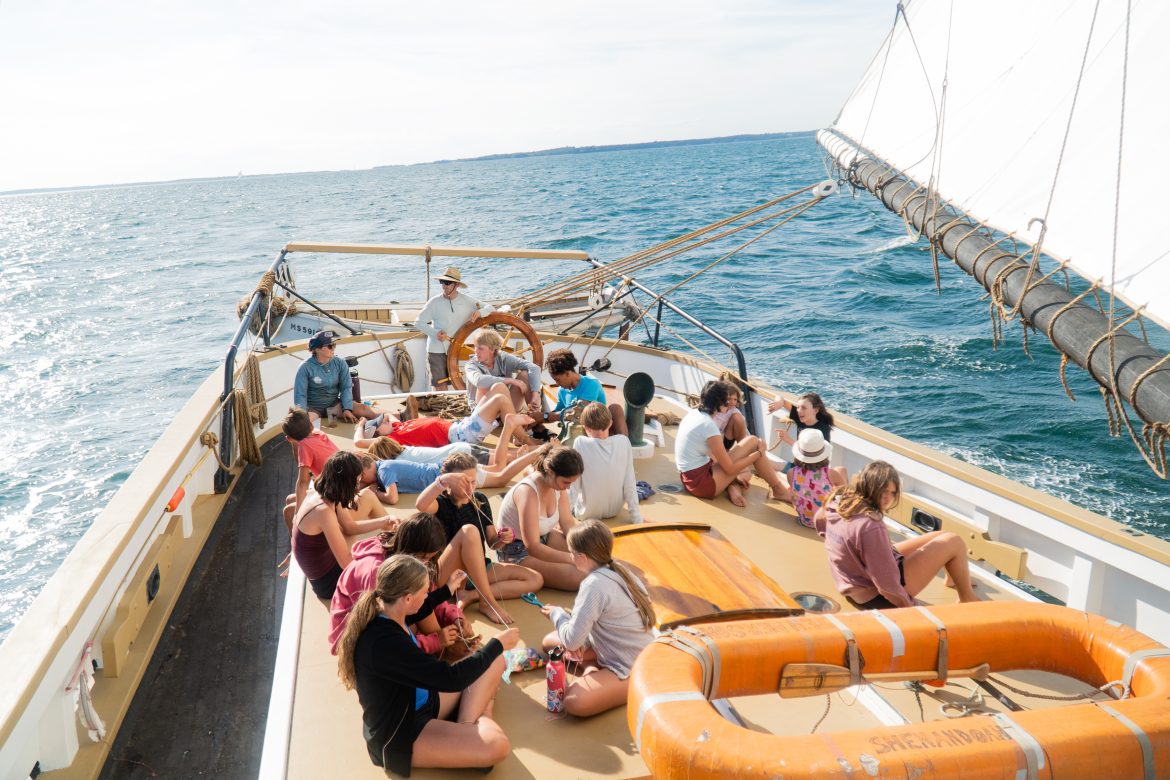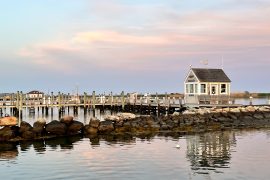Aboard the schooner Shenandoah, students learn about sailing, the marine world—and even more about themselves.
By Jennifer Sperry
Five and a half days and five nights at sea on a topsail schooner with no engine for propulsion. On paper, it sounds like just another summer activity. But for students ages 9 through 17 who say yes to FUEL Program’s summer youth voyages, a weeklong sail aboard Shenandoah represents a voyage like no other.
The sailing, the chores, the learning, the weather, the memories with friends—for all participants, these days and nights at sea represent a unique childhood experience that hearkens back to “simpler” times before technology or social media. Instead of comparisons, the trip fosters teamwork. Instead of a quick Google search, the answers are more hard-fought.
For some, the time at sea is life-changing, planting seeds for future goals and careers. As the program itself promises: “It becomes a part of who you are.”
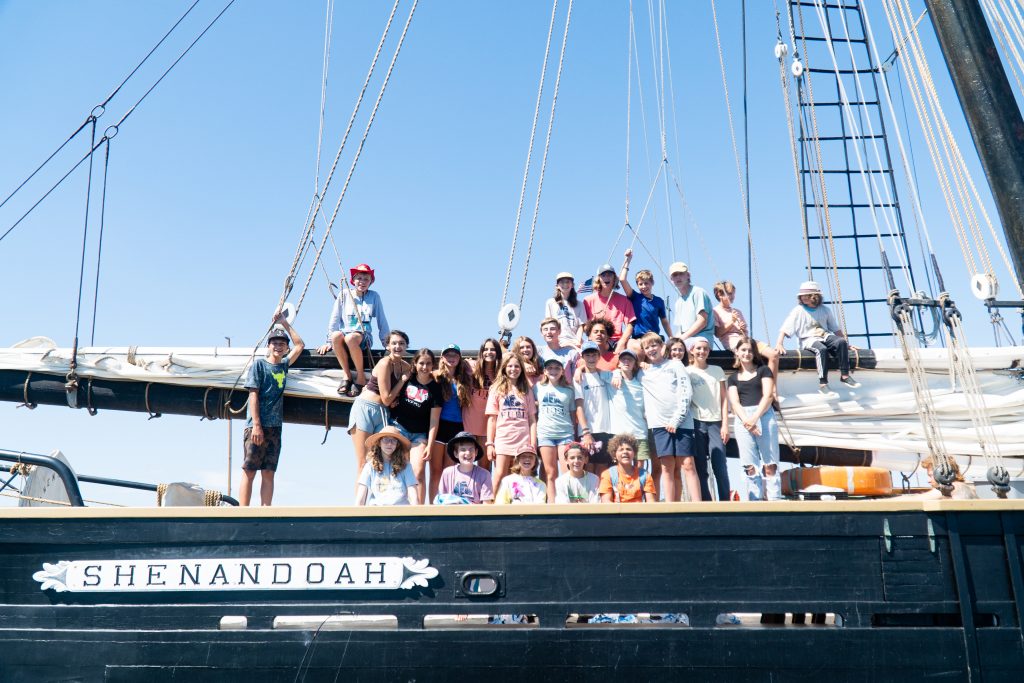
Shenandoah is operated by FUEL, a nonprofit cofounded by Ian Ridgeway and Casey Blum, who started as students voyaging on the schooner themselves. Built in Maine in 1964, the 152-foot vessel was owned and captained by Bob Douglas (founder of Vineyard Haven’s popular Black Dog restaurant and the resulting brand) for almost 60 years until the pandemic hit in 2020.
At the same time, Douglas learned that his vessel needed major repairs. He didn’t want to halt the program, so, at the age of 88, he handed off Shenandoah to his former students and their Foundation for Underway Experiential Learning (FUEL) nonprofit. Right away, Ridgeway and Blum launched a successful capital campaign to fund the extensive repairs, getting Shenandoah Coast Guard certified and sailing once again by the summer of 2021.
While they’ve made some adjustments since assuming ownership, Ridgeway and Blum have stayed true to the schooner’s educational legacy. “The core experience is similar to what it was like during the ’80s, ’90s, and through the 2000s,” says Blum. “Voyaging on Shenandoah was about unplugging and being present with the people and the environment around you.”
Continues the program director, “Our voyages are about learning how to operate a traditional ship with no engine, but also about how to exist onboard, where everything from showering to doing dishes is an adaptation from how it’s done at home. Under Captain Douglas, the experience was loosely defined, but it was all about building resilience and learning how to thrive in uncomfortable environments.”
As a child, Blum couldn’t get enough of the experience and sailed aboard Shenandoah from the age of nine all the way up to 16. She then worked as a deckhand for five summers, first mate for three more summers, and started captaining at the age of 24.
While Ridgeway is the ship’s full-time captain, Blum focuses on her role as education director, for which her background is perfectly suited. She has a bachelor’s degree in outdoor education and two master’s degrees, in outdoor education and social work, from the University of New Hampshire. “Our program’s curriculum is now based on three pillars: marine competency, environmental stewardship, and personal development,” she explains.
Inspired by his father, who sailed with Captain Douglas as a kid, Ben Bartholomew, 13, has sailed with Shenandoah three times now. During his most recent voyage, in July 2022, favorable winds made it possible for the schooner to log one of its longest trips, from Vineyard Haven to the port of Mystic, Connecticut. Going ashore and visiting Mystic Seaport, playing games on the beach with his friends, swimming, and diving off the jib boom were all highlights of this trip.
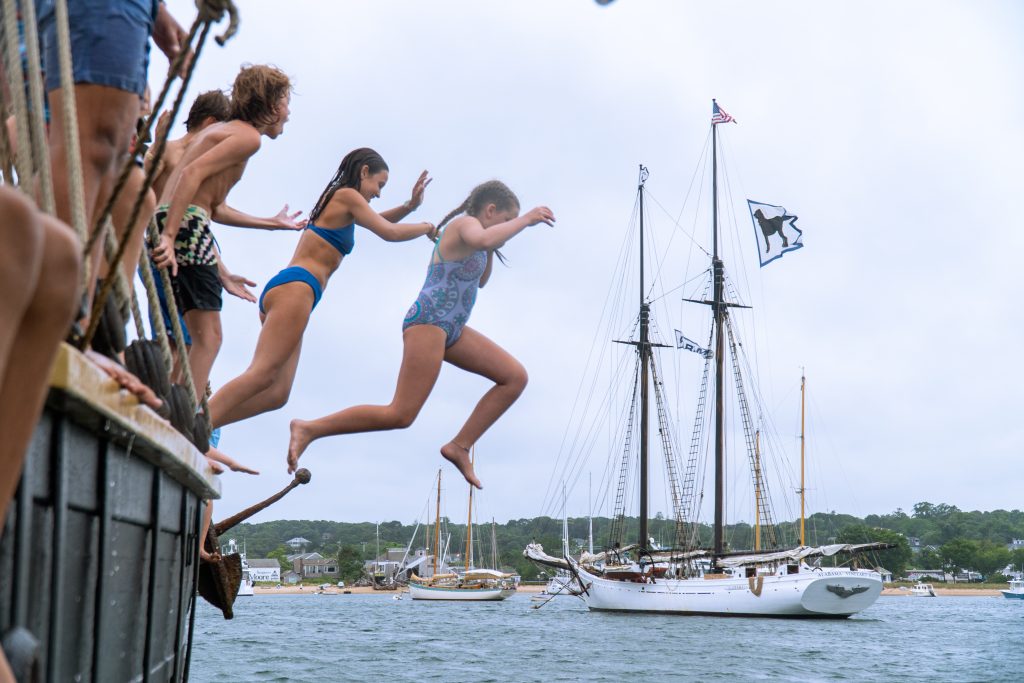
“We helped haul up the anchor and sang sea shanties while doing our work,” says Ben, adding that seeing bioluminescence and dolphins were other memorable moments.
“The trips have done so much for his confidence,” says Ben’s mom, Sharon Bartholomew. “He comes home with lots of energy, telling us all about the things he’s learned: tying knots, navigation. Without technology, he even started journaling, which he had never tried before. Now, he coordinates future trips with the friends he’s made, and they talk throughout the year,” she adds.
Sisters Isla and Mila Fairstein, ages 13 and 14, respectively, always look forward to their time on Shenandoah. As residents of Martha’s Vineyard, they can participate in FUEL’s School Group Voyages for island students but typically sign up for regular voyages as well. Having grown up sailing, the sisters are comfortable on boats; however, they still learn new skills every time they step aboard their happy place.
“I really enjoy the sailing parts. I like learning about the boat, hoisting the sails, helping with the ropes, and hauling up the anchor,” says Isla, who has started volunteering with FUEL as a deckhand-in-training. Recently, she recreated Shenandoah with an impressive nail and string artwork, which she donated to the nonprofit.
Mila’s favorite memories include singing along to the guitar, post-dinner talent shows, laughing with friends, seeing fireworks, and stargazing. “One night, there was a thunderstorm, and we watched as lightning lit up the sky,” she recalls.
The sisters, like Ben Bartholomew, also enjoyed spending time in Mystic Seaport, seeing how rope was made, viewing whaling ships, playing catch the flag on the beach, and grabbing French fries and ice cream before rowing back to anchor.
Their mom, Suzy Fairstein, embraces her daughters’ commitment to Shenandoah because it forces them to take risks. “These voyages are all about getting kids to push themselves and try new things. It teaches them how to problem-solve and improve situations. It’s a one-of-a-kind experience,” she asserts.
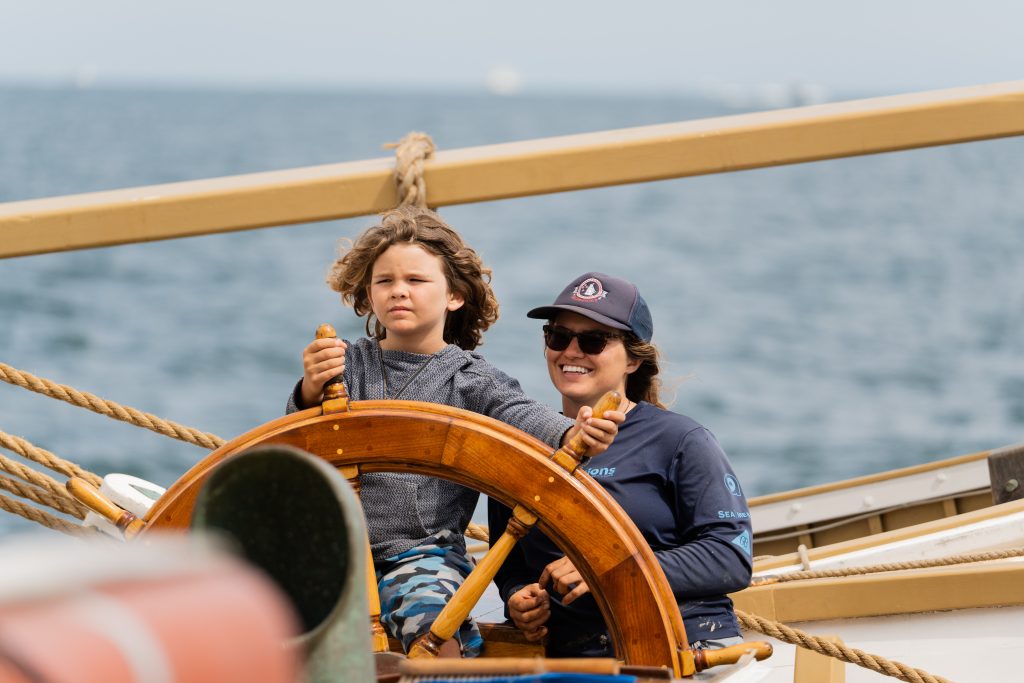
Sailing experience isn’t required, notes Blum, adding that the ship is never more than 20 miles from a safe harbor. “At the end of one week, we don’t expect the kids to be expert sailors,” explains the education director. “Instead, our goal is to instill the importance of being part of a crew; we stress the idea of shipmates and the need for mutual respect and values.”
And, thanks to the nonprofit’s diligent fundraising efforts, families of varying means can participate. FUEL offers scaled tuition rates based on income.
Yes, there are sometimes tears and a little homesickness at first. But the older kids befriend and guide their younger shipmates, and everyone quickly becomes accustomed to the rhythm of life at sea. Ultimately, most trips end with happy tears, notes Blum, as participants say goodbye to friends with promises of “see you next year.”
